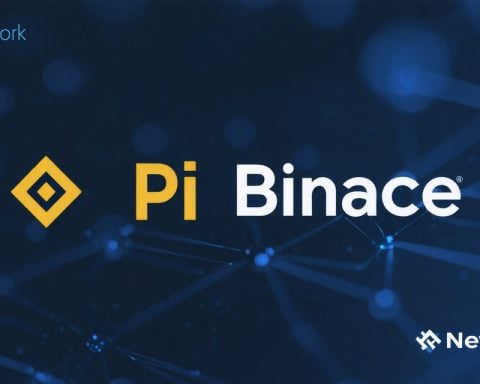- Quantum computing is poised to revolutionize technology by using “qubits,” allowing for faster and more complex data processing than traditional binary systems.
- The quantum computing market is projected to grow by over 20% annually until 2030, although broad mainstream adoption may be decades away.
- IonQ is a pioneering company, using “trapped ion” technology to miniaturize quantum devices, with plans to expand from 36 algorithmic qubits to 1,024 by 2028.
- IonQ represents a high-risk, high-reward investment with challenges, including profitability amid a high valuation.
- Microsoft is advancing with its Majorana 1 chip, leveraging its strengths in cloud computing and AI to integrate quantum advancements.
- Microsoft’s approach offers a more stable investment avenue in quantum technology with an emphasis on cloud and AI integration.
- Investors have opportunities with IonQ’s ambitious growth or Microsoft’s steady integration of quantum capabilities.
Quantum computing stands on the precipice of revolutionizing the tech landscape, challenging the very fabric of traditional computing. Unlike conventional binary systems that maneuver within the rigid confines of zeros and ones, quantum computers embrace more complexity, dancing with “qubits” where zeros and ones coexist in harmony. This evolution promises unprecedented speed and data-crunching power, yet remains shackled by the burdens of size, cost, and error-prone outputs. Until now, quantum computing has remained a coveted tool for academia and elite scientific circles, but as technology shrinks and evolves, a broader dawn approaches.
The global quantum computing market is poised for explosive growth. By 2030, the market could expand annually by over 20%, though experts like Nvidia’s Jensen Huang caution that the mainstream advent of these machines may take decades. If you’re aiming to get ahead of the curve, betting on the right companies is key, and two pioneers stand out: IonQ and Microsoft.
IonQ, a bold competitor on the forefront, transforms possibilities into reality with its lineup of quantum computers. The company pioneers innovations to miniaturize these complex machines, harnessing proprietary “trapped ion” technology to shrink quantum processing units dramatically. Its roadmap is ambitious: pushing quantum computing power from an already impressive 36 algorithmic qubits today to a staggering 1,024 by 2028. Despite its promising trajectory and a niche spotlight of being a “pure play” in quantum technology, IonQ remains a high-risk, high-reward investment, grappling with profitability challenges amidst its soaring valuation.
Microsoft, on the other hand, provides a steadier path. Known for dominance in cloud computing and artificial intelligence, it now nudges the quantum frontier forward with its groundbreaking Majorana 1 chip. This innovation, rooted in decades of research, positions Microsoft not only as a pillar in quantum advancements but as a cornerstone in its integration with cloud and AI solutions. Although the mass production of these quantum marvels remains distant, their potential to unlock unparalleled computational power signals transformative possibilities.
For those eager to tread this nascent quantum landscape, IonQ offers a thrilling, albeit speculative, foray, while Microsoft provides a sturdy bridge into a future where quantum computing capabilities meet practicality. In harnessing the momentum of both innovative fronts, investors can savor the promise of tomorrow’s technological marvels today.
Unlocking the Quantum Revolution: What You Need to Know
Quantum computing is set to revolutionize the tech industry, promising to transform how we process data with unprecedented speed and efficiency. Although the technology is still developing, understanding the landscape and opportunities it offers can position you ahead in this emerging field.
Key Insights into Quantum Computing
How Quantum Computing Works
Quantum computing leverages the principles of quantum mechanics to process information. Unlike traditional computers that use bits (zeros and ones), quantum computers use “qubits” which can represent and process multiple states simultaneously. This capability allows quantum computers to solve complex problems significantly faster than classical computers.
Industry Trends and Future Growth
The quantum computing market is projected to grow at an annual rate of over 20% by 2030, according to market analyses. Companies like IonQ and Microsoft are leading this charge. IonQ focuses on innovation through trapped ion technology, aiming to increase their quantum computing capability from 36 algorithmic qubits today to 1,024 by 2028. On the other hand, Microsoft is integrating quantum computing advances with its robust cloud and AI solutions, with its Majorana 1 chip positioning it at the forefront of this technological frontier.
Real-World Applications
Quantum computing is set to impact several industries:
– Pharmaceuticals: Simulating molecular structures to speed up drug discovery.
– Cryptography: Enhancing encryption techniques to secure data more effectively.
– Finance: Optimizing complex computations for financial modeling and risk management.
– Logistics: Improving route optimization and resource allocation.
Investment Opportunities
1. IonQ: Known for its bold technological advances, IonQ offers high-reward potential with inherent risks tied to its valuation and profitability. Its focus on trapped ion quantum computers distinguishes it in the market.
2. Microsoft: As a tech giant with deep roots in cloud computing, Microsoft’s strategic integration of quantum computing through its Majorana chip provides a stable investment option, combining quantum computing with existing technological infrastructures.
Pros and Cons of Quantum Computing
Pros:
– Unmatched processing speeds for complex algorithms
– Potential to solve currently intractable problems
– Opens new avenues in scientific research and innovation
Cons:
– High cost and complexity of production
– Error correction and stability challenges
– Current limitations in accessibility and availability
Expert Opinions and Predictions
Experts like Nvidia’s Jensen Huang note that while the potential of quantum computing is vast, mainstream adoption may take decades. However, as the technology evolves, those investing early in companies like IonQ and Microsoft could reap significant rewards.
Actionable Recommendations
– Stay Informed: Keep up with the latest research and developments in quantum computing.
– Diversify Investments: Consider a balanced portfolio by exploring both speculative and established investment options in the industry.
– Focus on Applications: Evaluate how quantum computing can impact your specific industry and position yourself or your business to leverage its benefits.
Conclusion
Quantum computing is on the cusp of fundamentally transforming many industries. While the path to widespread adoption is fraught with challenges, its potential is immense. If you align with the right companies and keep an eye on market trends, you can strategically position yourself to take advantage of this technological revolution.
For more information on technological advancements and investment strategies, visit IonQ and Microsoft.



















